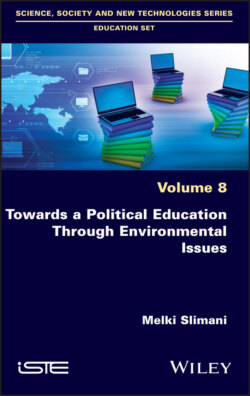Читать книгу Towards a Political Education Through Environmental Issues - Melki Slimani - Страница 13
1
The Political Trend in Environmental Issues 1.1. Politics, the political and depoliticization
ОглавлениеTo characterize the political field that intersects with EDIs, we have drawn on Gachkov’s (2012) advanced reading of the main concepts of the French philosopher Lefort1 (politics, democracy, revolution and human rights). In this reading, the author proposes a conceptual distinction between “politics” and “the political”, where the first term is conceived as a more niche sphere of social phenomena that exists among others (religion, law, civil society, etc.). Politics is seen as an institutionalization of the political (a symbolic field), actualizing it through the participatory civic form of radical democracy as “a democratic order in which the irreducibility of the plurality of understandings of the common good, the necessity of openness and transparency, an acceptance of fundamental uncertainty and the impossibility of ending the democratic quest are central” (Blokker 2014, p. 379).
According to Gachkov’s reading of Lefort, paradoxically, liberal politics through its insistence on individual liberties cannot provide decent protection for them because most of the people involved (the bourgeois) are depoliticized. This depoliticization, which is the consequence of the refusal of the bourgeoisie to participate in political debates because “their will is to take care only of their families and their advancement” (Gachkov 2012, p. 385; author’s translation), can provoke the appearance of totalitarian power sacrificing the lives of citizens based on a logic that “consciously confuses political power and civil society” (Gachkov 2012, p. 384; author’s translation). Thus, liberal politics (of which representative democracy is a component) makes democracy vulnerable to totalitarianism. In democratic society, where politics as an activity that questions the entire social domain, political power and civil society must coexist without domination in a social field where “power, law, knowledge are tested by a radical indeterminacy” (Gashkov 2012, p. 383; author’s translation). In contrast to a totalitarian society that wants to be certain of its future, political freedom in democratic society corresponds to the capacity of such a society to open up to uncertainty.
